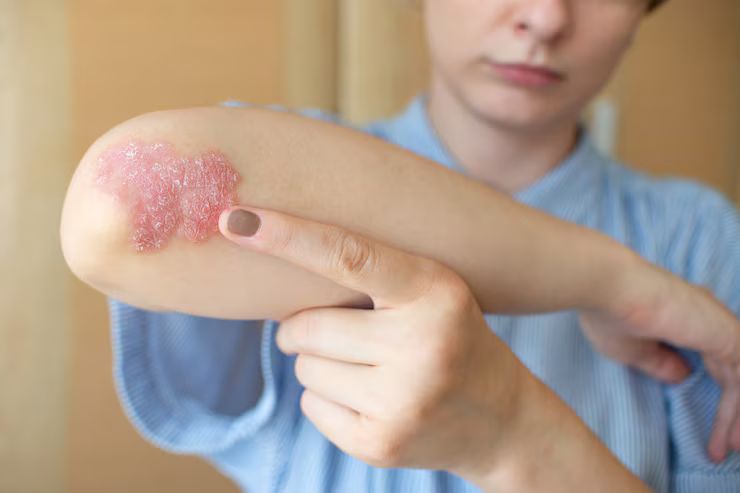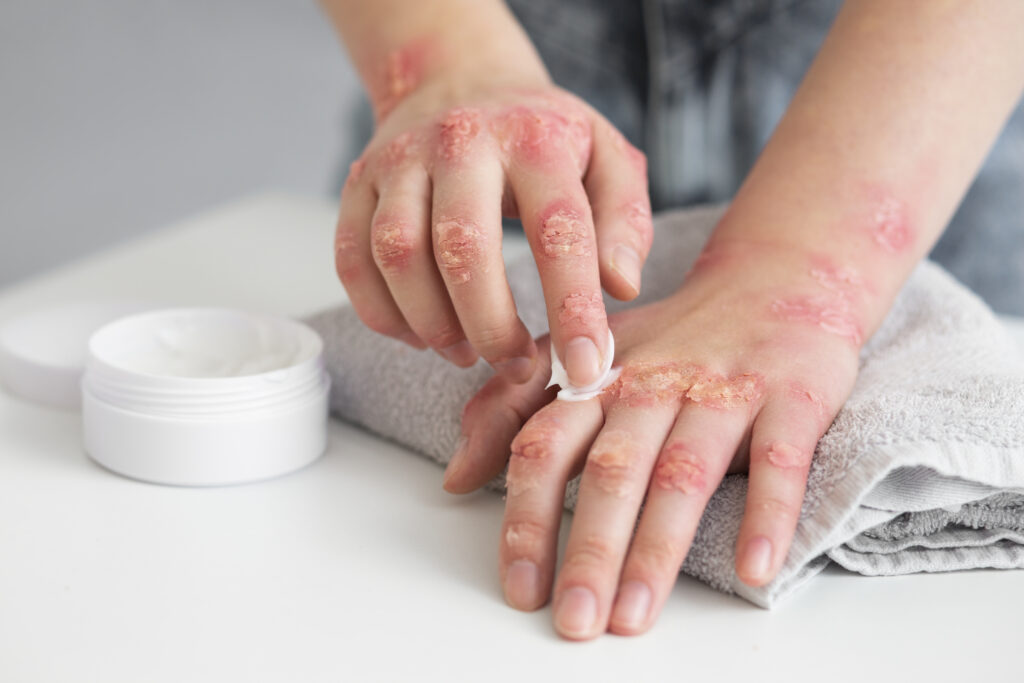Psoriasis Treatment in Kochi – Expert Skin Care
At Jeny’s Aesthetics, our expert Psoriasis Treatment in Kochi helps manage flare-ups, reduce itching, and heal dry, scaly skin naturally. With personalized treatment plans and dermatologist-led care, we aim to restore your skin’s health and improve comfort effectively.
What is Psoriasis?
Types of Psoriasis
Plaque Psoriasis
Guttate Psoriasis
Inverse Psoriasis
Pustular Psoriasis
Book Appointment

Symptoms of Psoriasis
- Red, inflamed skin patches
- Itching or burning sensations
- Dry, cracked skin
- Nail changes
How Psoriasis Affects Daily Life
Psoriasis can impact confidence, comfort, and daily activities. Early treatment can significantly improve quality of life.
How Psoriasis Treatment Works
At Jeny’s Aesthetics, our Psoriasis Treatment in Kochi includes personalized care plans. Treatments focus on reducing inflammation, controlling flare-ups, and maintaining healthy skin using topical therapy, phototherapy, and advanced dermatological procedures.
Topical Treatments:
Phototherapy & Advanced Procedures:
For moderate to severe psoriasis, phototherapy and advanced procedures offer effective results. Controlled UV light therapy helps slow down overactive skin cell production and reduces flare-ups. Additionally, our dermatologists use targeted medical interventions to manage chronic symptoms, restore skin health, and improve quality of life.
Why Choose Jeny’s Aesthetics for Psoriasis Care in Kochi

Our certified dermatologists provide safe, effective, and personalized treatment. We combine medical expertise with compassionate care to help you manage psoriasis confidently.
